I began as a strength coach volunteering at my alma mater back in 2009. Following three years in that volunteer-internship capacity, failing, assisting, and learning everything I could about the strength & conditioning profession I was officially given teams that directly fell under my responsibility in the summer of 2012 as a newly minted graduate assistant coach. As I cross the decade mark as a full-time strength coach, I’d like to share 10 strength lessons I’ve learned from my start in this wild yet fulfilling profession.
Guide
1. Preparation meets adaptability
Plenty of people have said it before, but it goes without saying again that preparation is key. This is especially true coaching in strength and conditioning. Many things are out of your control but having a plan for what you can control is crucial. Although you cannot plan for every situation, you can certainly do your due diligence ahead of time to be prepared for potential changes. Have a plan. Have an alternative plan, a contingency plan and even an emergency one. By having multiple plans you’re prepared for any scenario leaving you the bandwidth to remain coaching your new plan when your team arrives versus throwing up your hands and haphazardly putting something together from scratch on the spot. Change is inevitable so having pre thought out alternative plans ready to be implemented on a moment’s notice, will save you both the time and headache during the session so that you can remain actually focused on coaching rather than constructing something with the new information.
Having contingency plans for the almost inevitable changes to your original plan is important but a close second to that preparation comes the ability to be adaptable. Possessing the ability to roll with those changes is vitally important to continually working toward your objectives in the weight room as well as keeping yourself sane as a coach. It can feel like the weight room and your plan always falls victim to schedule changes and becomes the area to shift time slots or shave time off to make room for more “important” things. Remember that we support the sport coaches and what we do, although important, is secondary to the sport. Handle those changes as professionally as possible and turn your ideal plan into your most optimal one given the circumstances presented. There are ebbs and flows to the season where priorities of training shift, so always be ready to adapt and make the most of whatever situation, planned or amended, that comes your way.
2. You don’t need to know it all
It’s impossible to know it all but having a cursory knowledge of things within your scope of practice is important. Think an inch deep and a mile wide. It’s perfectly fine to have a niche but you cannot always rely on what you are best at or enjoy doing the most. You need to be able to provide the best all-around program and environment from your athletes and if you are just a one trick pony (an inch wide and a mile deep) and only know a lot about one very specific thing, you’re doing them a disservice. Always be open to new ideas and learning but at the same time, don’t think you need to dive into the depths of the ocean with every topic in order to have an understanding of it. Just being familiar and having the ability to contribute to the conversation is a great start. You can always dive into the deep end later.
With not knowing everything comes admitting that to not only yourself but to others. Have some humility and be transparent with both your athletes and coaches. If you don’t know something go find out, point them in the right direction or simply let them know you don’t have enough information to answer their question at this moment. When that happens, it is the perfect opportunity for you to go do some research or ask them to teach you what they know. If they ask, it’s important to them. Follow up before they do. There are ‘experts’ everywhere in this profession. Be the best generalist you can be but learn from those experts and put that information into context to be used in your specific setting moving forward.
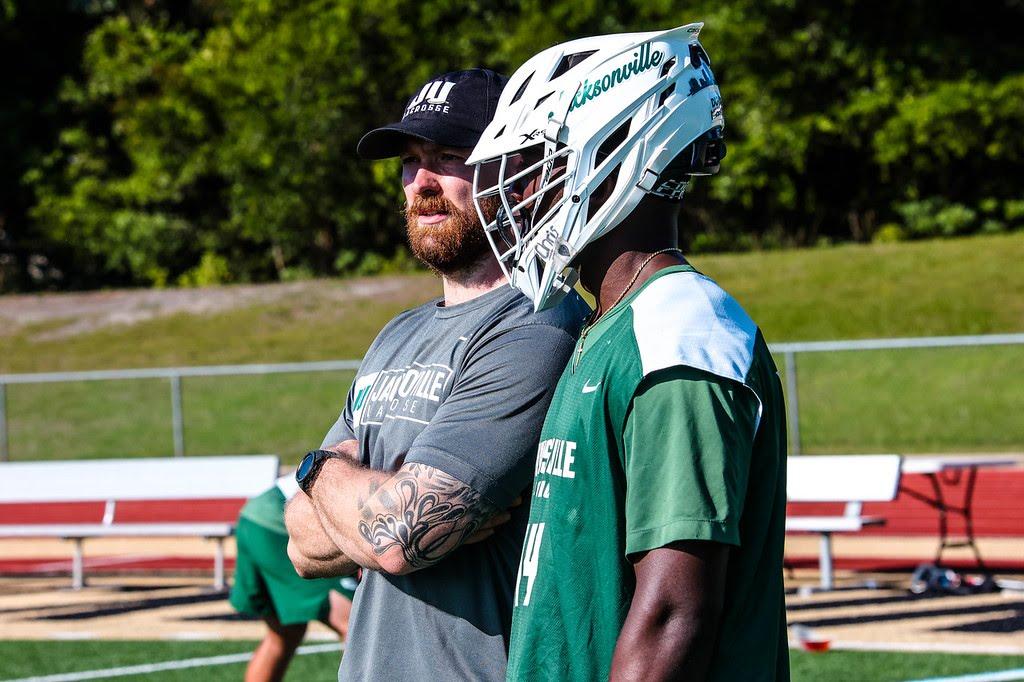
3. Under promise, over deliver
I have preached this to all my interns and early in my career had to remind myself constantly. It’s great to be eager and willing to get after it. Passionate, fired up coaches who are excited to do their part and exceed their job responsibilities are awesome. With that being said, there is a time to burn the candle at both ends but at a certain point too much leads to burnout. Eventually productivity will drop or something somewhere will slip through the cracks. You can’t do it all and even though you might think you can, or you actually attempt to, it is not sustainable. This is especially difficult and even counterintuitive early on in your career but the sooner that you figure this out, and realize over-promising is not sustainable, the longer and more fulfilling your career will be.
When it comes to adding more to your coaching plate, think first; is this possible? Then ask yourself, is this sustainable? If your answer to the latter is no, lay off the gas a bit, focus on your big rocks and be brilliant at those before you overextend yourself. It’s much better to have all your big pieces running efficiently before you get into the minutia. Additionally, understand that when you are constantly saying yes to everything, it means you’re inadvertently saying no to something else. Doing a good job consistently beats being great occasionally. Learn to say no when necessary and excel at your primary things before agreeing to every project pitched your way.
4. Live outside the weight room walls
This goes hand in hand with the lesson we just covered. When young coaches start and they have an extreme passion for their craft, they give every minute of every day, and spend all their time and energy on work and at work. It is great to find something that you want to dedicate everything toward but if you want to be invested in the long-term, it cannot be the only thing you do. Despite what others say, there is no real work-life “balance.” Inevitably the priorities of these two at different times of the year are going to shift the scales back and forth. The goal shouldn’t be to find a perfect balance between the two, but rather ensure that one doesn’t completely overtake the other.
The bottom line is, enjoy your time in the weight room but also your time out of it. Take time away from work and invest time and energy in yourself and your life outside of just training, coaching and sports performance. Your only hobby can’t just be training as a strength coach either. Set aside time for yourself and things outside of the profession. The best part of all this is you’ll be more recharged and excited to be at work once you have returned. You’ll wish you spent more time away from work later in your career, so get in front of that potential realization and establish some boundaries, use time management at work, and prioritize your time for things unrelated to the profession.
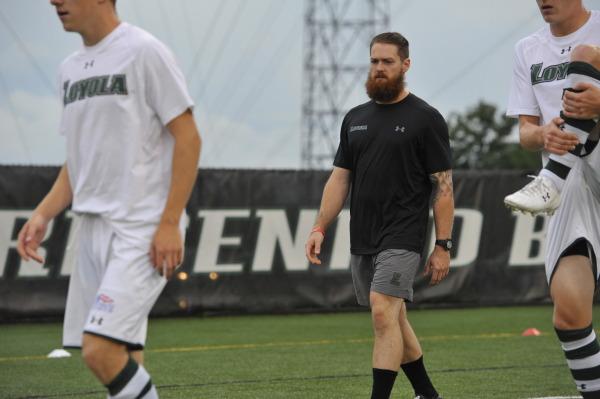
5. Everything with a purpose
Everything you do, use, coach, or say, you should be able to justify the ‘why’ behind it. There should be a reason why it has made its way into your program, and you should be able to defend yourself when someone asks why it is. This should be a no brainer but even more important now than ever since free coaching information and programming is readily available to athletes and is constantly shoved in their faces from every point of view with no context, you as a sports performance professional need to provide the best program from a professional standpoint. You need to provide a training regimen that actually works and one that is based on science and principle based training that you can just as well educate your athletes on so they can learn to sift through the absolute trash they come across on the internet or spewed out from guru ‘coaches’ who try to reel them into their gym with flashy, gimmicks.
What goes into your program should be a priority and you should be able to provide a rationale and the benefits as to why it’s a staple in your program. No fluff, no filler, nothing ‘just because,’ and nothing that doesn’t work toward the goal. When you avoid the extra fluff, eye wash exercises and general non-performance impacting things, you send a clear message that what you have in the program is important. And if everything in your program falls under this criteria, athletes will be more purposeful with their actions because they not only know it’s important, but they understand it’ll benefit them when it comes to competing at their sport.
6. It’s easier to ease up on the reins versus tighten them later
When you start a new program, season, or even phase of training with a team, remember what you tolerate, you encourage. Meaning, from the time your athletes enter the facility to when they exit, what they do and more importantly how they do it is because of the expectations you put in place, the environment you establish and actions you tolerate during training. What happens in that area, what rules they operate under and what conditions all come down to what you do or don’t address, emphasize and enforce. The standard is the standard. However, it only remains the standard if you uphold it. If what is deemed bad is not addressed and what is deemed good is not reinforced, not only in the beginning, but also when things pop up later on, then it’ll quickly turn into a free-for-all. At this point you will need to tighten things up and pull back the reins. However, if you were too loose from the start, this becomes a real issue.
As a coach and leader of sports performance training, it is our job to make sure we set the course. At times we drive the ship, but eventually when the team has demonstrated they are capable, you must give them the keys so they can take more ownership, at which time you check the compass to ensure everything is still going in the right direction. The goal of training is always to become coach fed, and player led but initially the expectations are highly driven by the coach day in and day out until it becomes second nature and echoed by the leadership within the team. You can only do this if you set the standard from the start and hold the line consistently. Lay out your expectations for the team as well as what they can expect from you as the coach. Hold each other accountable and eventually as the team demonstrates they can uphold the standards over time you can loosen the reins without compromising your standards.
It is way easier to allow for some variance and leeway on certain things later once expectations have been established and are upheld. Conversely, it is much more difficult to start off looser and then try to reel everything back in and be tighter on the rules.
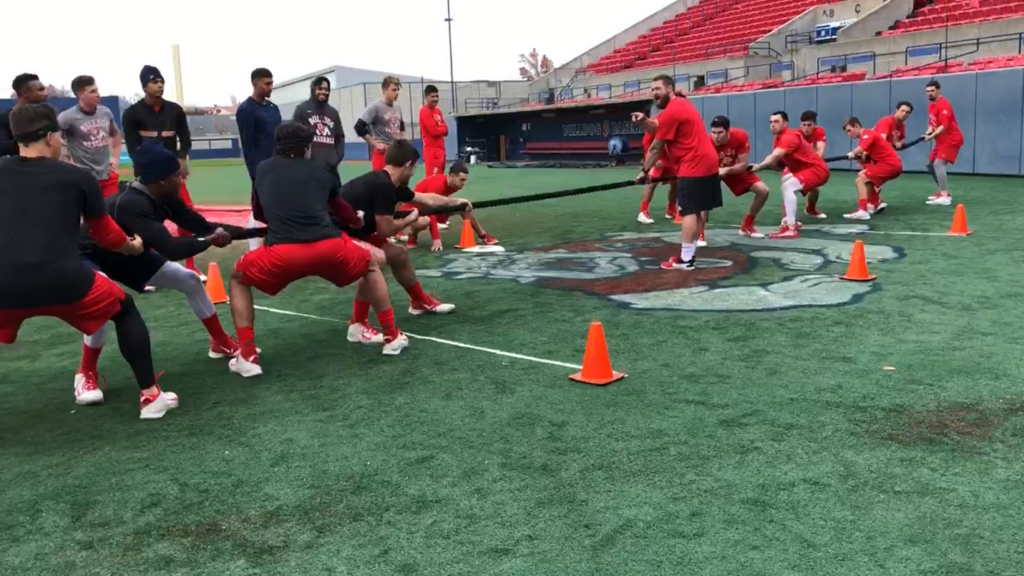
7. People and the Process
Coaching is a people business. Our most important resource and our competitive advantage are the people in our organization. If you cannot build trust or communicate well, you’re going to have a difficult time building a quality relationship with your athletes and in turn will have a tough time getting your athletes to buy into your training program. Treat them as people first and athletes second. Earn their trust and respect, never demand it. Building relationships is the number one part of the business of coaching.
The next most important thing is the process of how we do things. Empower and encourage your athletes. Challenge them and put them into difficult positions so they can truly develop and even strategically fail in a controlled environment. Actively listen to them and embrace allowing them to have ownership over the program when they have earned that responsibility. At the end of the day, if you have the right people in place, how you go about training with those pieces can really drive success both on and off the field. As a coach, you are a part of other peoples’ processes even if others only view it as athletics. The skills learned are transferable and coaches and sports can make a positive difference on who they are as a person based on how we structure and layout our training program.
8. Hard work does not equal success
Hard work and success are correlated, but there is not a direct causation. Just because you work harder than someone else does not guarantee you’ll have more success than them. It doesn’t even guarantee that you’ll have success at all. Don’t get me wrong, hard work matters for success, but it doesn’t just equal automatic success. Working hard does provide more opportunities to be successful but the exact moment that success will occur isn’t a hard science.
The attributes that come along with working hard far outweigh the extrinsic results associated with that work. Don’t be discouraged or shy away from that work even if it does not result in immediate reward. For all you know that next strike of the hammer is the one that’ll break the rock. Keep hammering away because in strength training, coaching and athletics, success doesn’t instantly provide a huge payoff, but when the results start to show it is much more gratifying because it is earned. Everyone’s path to ‘success’ is unique. Focus on the work and the results will come but don’t compare your work and success to others, thinking that it is a one for one blueprint.
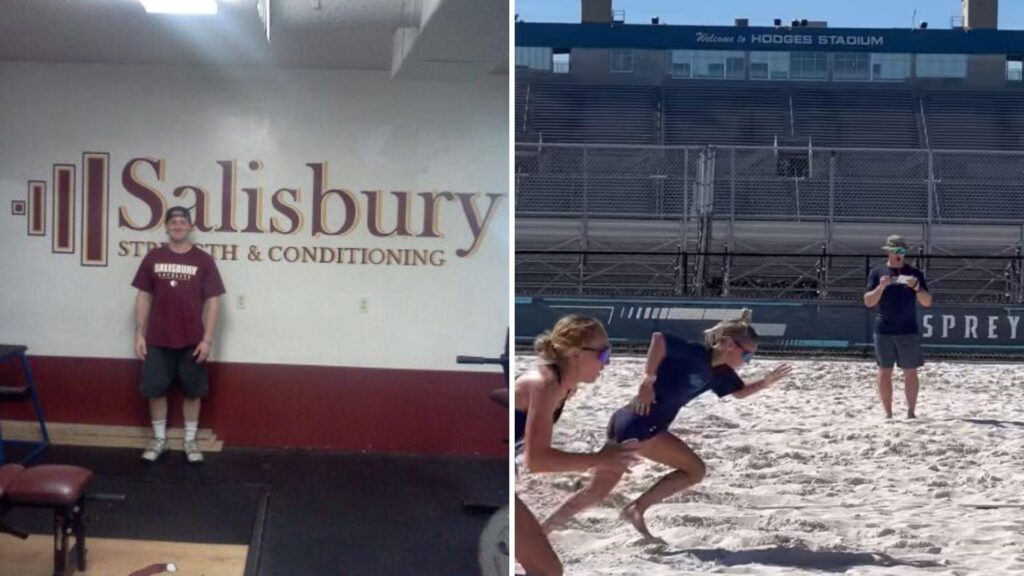
9. Every day is a school day
You’re either getting better or getting worse. I have told my athletes this in regards to training ever since I can remember but it also most certainly applies to more than just strength training. There is no staying the same, no such thing as simply maintaining. This means we as coaches need to continue to develop and cannot just rest on our laurels. Coaches need to continue to train, lift and live the lifestyle. Additionally, outside of just ‘doing,’ we need to be still learning. No matter if you read, watch, listen or all of the above, learn, develop and improve in some way.
This applies to more than just coaching. Improve in some manner, even if it doesn’t directly relate to sports performance. You can pull lessons from any situation and tie those lessons back into athletics somehow. That in turn will only positively impact your athletes by either providing them a better product during training or a better version of yourself those training days. Make sure you are learning and advancing in other areas and aspects of your life. You can’t just be one-dimensional and live and breathe coaching 24/7. The more well-rounded you are, the more energized you are for coaching and the more you can relate to athletes who aren’t typically as passionate about preparation and training as you are. Live outside your comfort zone. Be curious and try something new. Be bad at something. Always be learning.
10. Pay it forward
Share what you have, what you’ve learned, and your opinions. Find ways to give back to the profession and be a mentor to those new to the field. If you had bad mentors, be the coach/mentor you wish you had. If you had good mentors, pass that knowledge onto the next crop of coaches. Thank those great mentors that took the time to work with you by paying it forward to the next generation of young coaches who are looking to navigate a career in this field.
Imposter syndrome affects us all, but it is everyone’s duty at some point in your career to help teach the next generation in this field. Despite what you think, you’re better at something than anyone else, pass that on and prepare the next coaches to surpass us. You may feel like you have nothing to offer or anything of value but where you are in your career is still ahead of where younger coaches are and want to be. Share your own path, your success stories, lessons learned, and mistakes made.
Conclusion
There are countless other lessons I have learned from this more than a decade of time I’ve spent coaching. I have no idea what the next 10 years will hold but I intend to continue to improve, and I hope these lessons from my journey so far help you along the way in your first decade of coaching. Cheers to the next years and new lessons.
Our Collaborative Planning Process allows you to prepare your project stress free by allowing our team to become your personal project manager. The real-time planning and organization of thoughts gives you back time and clarity as a leader. If you’d like to schedule a FREE CONSULTATION, please fill out this form.
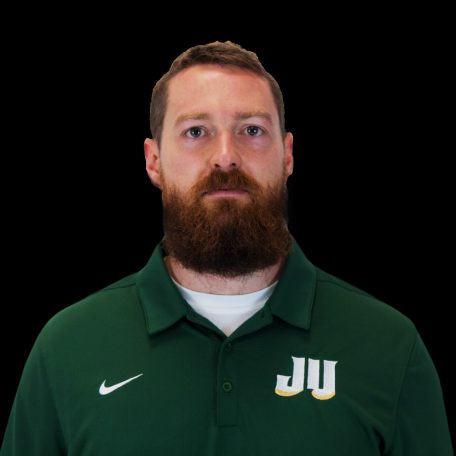
Nick O’Brien
college strength and conditioning coach, national level Strongman competitor and Highland games athlete, and an Officer in the United States Army.
A native of Oceanside, CA, O’Brien earned his Master’s degree in Applied Health Physiology in 2014 and his Bachelor’s degree in Exercise Science in 2012 from Salisbury University. A member of the CSCCa and NSCA, he currently holds the SCCC, CSCS, FMS, USAW-L1 and USAPL-CC professional certifications.
In addition to his coaching experience, O’Brien is a national level strongman competitor and Highland games athlete. He is a committee member of the NSCA Strongman SIG and the Host of “The Strength Game” Podcast. O’Brien is also a Second Lieutenant in the U.S. Army and currently resides in Jacksonville, FL.
Email: coachNobrien@gmail.com Website



